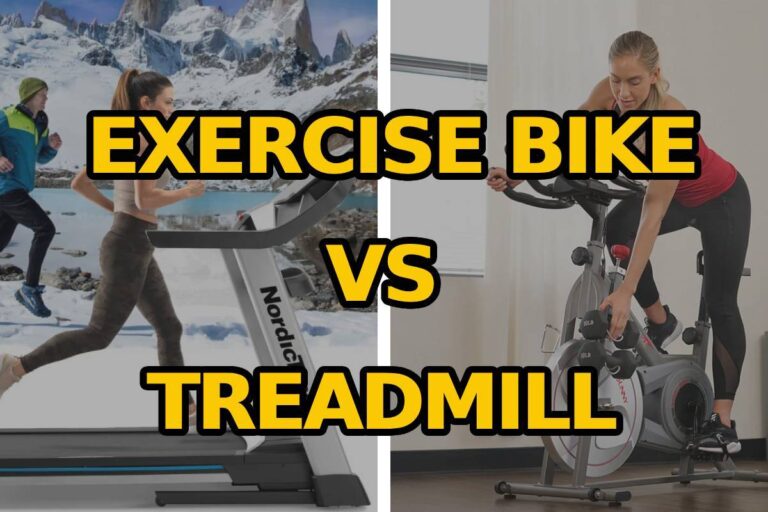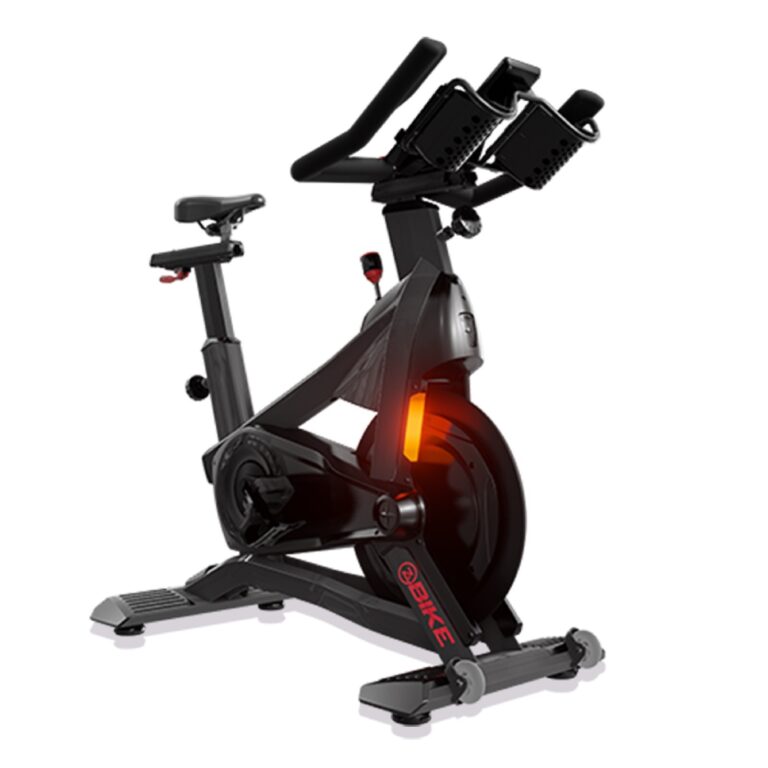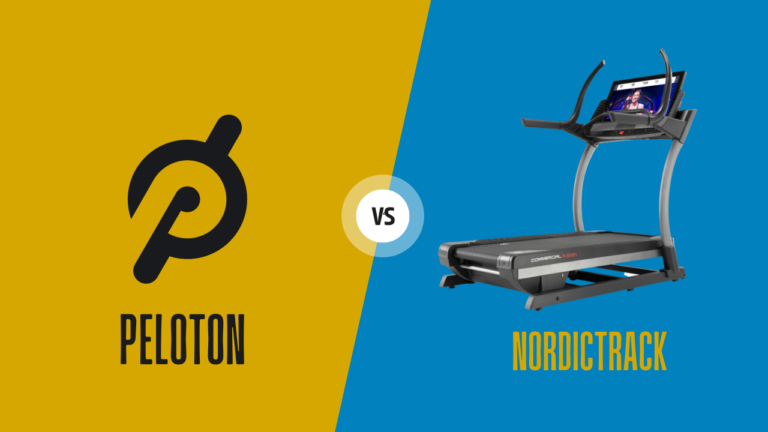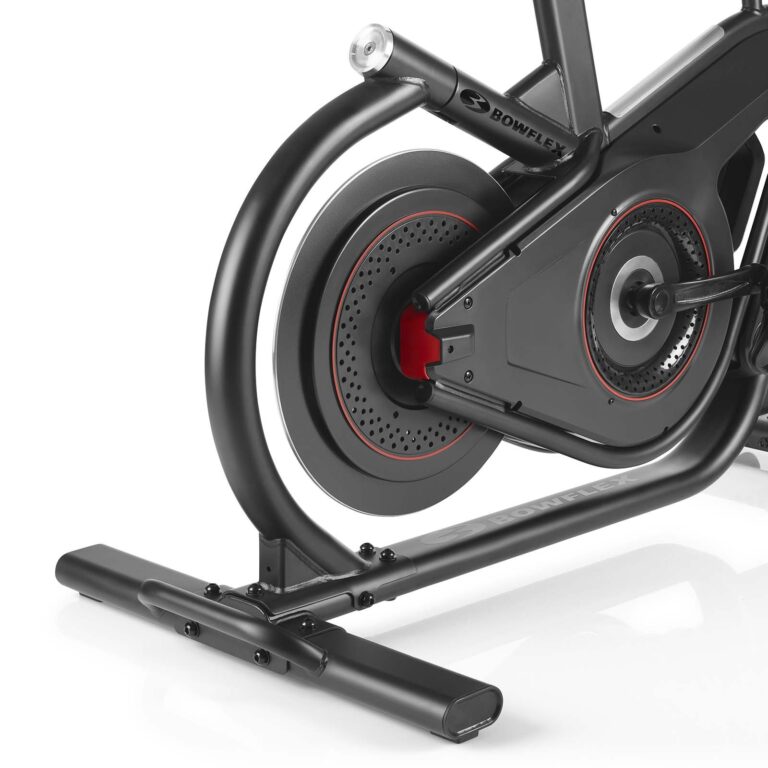Peloton Vs Apex : The Ultimate Showdown of Fitness Goliaths
Peloton and Apex are two popular fitness brands, but Peloton stands out with its advanced technology, comprehensive workout library, and immersive interactive experience. With features like live and on-demand classes, personalized metrics, and a robust community, Peloton offers a holistic fitness solution.
Apex, on the other hand, provides quality equipment at a more affordable price point but lacks the same level of content and interactive features as Peloton. However, Apex can be a suitable option for those on a budget or who prefer a simpler workout experience.
In this comparison, we will explore the strengths and weaknesses of both brands to help you make an informed decision about which one is best suited for your fitness goals.
The Rise Of Peloton And Apex In The Fitness World
Peloton and Apex have emerged as strong contenders in the fitness industry, providing innovative workout solutions. Both brands offer unique features and high-quality equipment, making the Peloton vs. Apex comparison an interesting choice for fitness enthusiasts. With their respective strengths and benefits, these brands are shaping the future of at-home fitness.
A Brief History Of Peloton And Apex As Innovative Fitness Brands
Peloton and Apex are two prominent names in the fitness industry that have gained immense popularity and revolutionized the way people approach their workouts. Let’s take a closer look at the history and journey of these innovative fitness brands.
Peloton
- Peloton, founded in 2012, started as a concept to bring the thrill of indoor cycling classes directly to people’s homes.
- The company gained widespread recognition with the launch of its flagship product, the Peloton bike, in 2014.
- By combining cutting-edge technology with immersive live and on-demand workout experiences, Peloton quickly became a frontrunner in the fitness industry.
- Peloton’s success can be attributed to its dedicated and passionate community of riders who participate in live classes from the comfort of their own homes.
- With its innovative approach to fitness, Peloton has expanded its product line to include not only the Peloton bike but also the Peloton Tread and a range of other fitness accessories.
Apex
- Apex, founded in 2018, has emerged as a formidable competitor in the fitness industry with its unique approach to personalized training.
- The brand aims to disrupt the traditional fitness model by incorporating artificial intelligence and machine learning into its programs.
- Apex makes use of advanced algorithms to analyze user data and create customized workout plans tailored to individual needs and goals.
- By providing personalized training experiences, Apex offers a solution to the challenges often encountered in generic fitness programs.
- The brand’s commitment to innovation and technological advancements sets it apart from traditional fitness brands.
Both Peloton and Apex have made significant contributions to the fitness industry through their innovative approaches. While Peloton has revolutionized home workouts with its interactive and engaging platform, Apex has embraced advanced technology to provide personalized training experiences. These brands have set a new standard for fitness enthusiasts worldwide.
Comparing The Key Features And Technology Of Peloton And Apex
Peloton and Apex are two fitness brands known for their key features and advanced technology. With a focus on user experience and performance, Peloton offers live classes and immersive workouts, while Apex provides innovative tracking and analysis tools to enhance training sessions.
Whether it’s interactive classes or cutting-edge tech, both brands offer unique fitness experiences for users.
With the rise in popularity of at-home workouts, Peloton and Apex have emerged as two leading contenders in the fitness equipment market. Both brands offer high-quality exercise bikes tailored to enhance your workouts with technology-driven features. In this blog post, we will delve into a detailed comparison of the key features and technology of Peloton and Apex, covering three main aspects: the hardware, the software, and the interactive features.
Additionally, we will explore the availability of supplementary equipment and accessories to further elevate your workout experience.
The Hardware: Analyzing The Quality And Functionality Of Their Exercise Bikes
- Peloton:
- Peloton’s exercise bikes boast a sleek, modern design that fits seamlessly into any home setting.
- The bikes are built with a sturdy frame and high-quality components, ensuring durability and stability during intense workouts.
- A wide range of adjustable settings enables users of various heights and body types to find their perfect riding position.
- The weighted flywheel provides a smooth and natural riding experience, simulating the sensation of riding on the road.
- Dual-sided pedals allow users to choose between using cycling shoes or regular athletic shoes.
- Apex:
- Apex exercise bikes are designed with a compact footprint, making them ideal for smaller workout spaces.
- These bikes are also built to last, with a solid frame and reliable components that withstand rigorous workouts.
- Adjustable seats and handlebars provide a customizable fit for users of different heights and preferences.
- The bikes feature a belt-driven system that ensures a quiet and smooth ride.
- Like Peloton, Apex includes dual-sided pedals for versatile shoe options.
The Software: Exploring The User Interfaces And Workout Programming Options
- Peloton:
- Peloton’s user interface is intuitive and user-friendly, making it easy for beginners to navigate.
- The platform offers a vast library of on-demand and live classes led by top-notch instructors, catering to a wide range of fitness levels and preferences.
- Users have access to various workout types, including cycling, strength training, yoga, and more, ensuring a diverse and engaging fitness routine.
- Personalized workout recommendations based on individual preferences and performance data help users stay motivated and achieve their fitness goals.
- The leaderboard feature allows users to compete with others, fostering a sense of community and friendly competition.
- Apex:
- The user interface of Apex is designed with simplicity in mind, providing clear and easy-to-follow instructions.
- Apex offers a collection of pre-programmed workouts that target different fitness goals and levels, providing users with a structured and effective exercise experience.
- Users can track their progress and performance metrics, such as distance, time, and calories burned, to monitor their fitness journey and set achievable targets.
- While Apex doesn’t offer live classes, it allows users to connect with virtual trainers for guidance and motivation during workouts.
- The platform also supports third-party fitness apps, enabling users to integrate their workout data and track their progress across multiple platforms.
Interactive Features: Evaluating The Real-Time Metrics, Leaderboard, And Social Aspects
- Peloton:
- Peloton provides real-time metrics displayed on the screen, allowing users to monitor their performance during workouts and make adjustments as needed.
- The leaderboard feature ignites friendly competition by ranking users based on their performance, motivating them to push harder and achieve personal bests.
- Users can follow friends, participate in group workouts, and even challenge each other for added motivation and support.
- The social aspect of Peloton extends beyond the platform, with users forming active communities on social media platforms, fostering a sense of belonging and camaraderie.
- Apex:
- Apex offers real-time performance metrics on the bike’s display, enabling users to gauge their progress and make necessary adjustments.
- While Apex doesn’t have a built-in leaderboard feature, users can still track their improvement over time and compete with their own personal records.
- Apex encourages users to share their achievements and workout updates on social media platforms, allowing for external support and accountability.
- The platform provides virtual connectivity options for users to engage in group workouts and connect with fellow fitness enthusiasts, creating a collaborative environment.
Additional Equipment And Accessories Available For Enhanced Workouts
- Peloton:
- Peloton offers a range of optional accessories, including heart rate monitors, resistance bands, weights, and yoga props, allowing users to diversify their workouts.
- The brand also provides a subscription-based service, granting access to additional content such as guided meditations, running workouts, and outdoor cycling classes.
- Apex:
- Apex provides supplementary equipment like weights, resistance bands, and yoga mats, enabling users to incorporate strength training and other exercises into their routine.
- Users can also explore a variety of workout DVDs and online resources from Apex to enhance their fitness regimen.
With a brief glimpse into the key features and technology of both Peloton and Apex, you can now make a more informed decision based on your fitness goals, preferences, and budget. Whether you prioritize a vast collection of live classes or a customizable workout experience, these brands have something to offer for anyone looking to elevate their at-home fitness journey.
Examining The Workout Experience And Variety Offered By Peloton And Apex
Comparing the workout experience and variety between Peloton and Apex reveals the strengths and differences of these popular fitness platforms. Peloton offers a wide range of workouts, while Apex focuses on high-intensity interval training. Both provide a unique and engaging exercise experience, catering to different fitness preferences.
Are you in search of an invigorating workout experience that offers variety and caters to your fitness goals? Look no further as we delve into the workout experience and variety provided by two popular fitness platforms: Peloton and Apex. We will compare the advantages and disadvantages of on-demand vs.
Live classes, the range of classes available in terms of intensity, duration, and fitness goals, the expertise and motivational skills of instructors, and how both platforms incorporate gamification and rewards to encourage user engagement and progress.
On-Demand Vs. Live Classes: Advantages And Disadvantages Of Each Platform’S Approach
Let’s explore the differences between on-demand and live classes offered by Peloton and Apex:
On-Demand Classes:
- Flexibility: With Peloton’s on-demand classes, you have the freedom to choose when and where you want to work out. This convenience allows you to fit exercise into your schedule without being tied to specific class times.
- Variety: Peloton’s on-demand library offers a vast selection of workouts across different disciplines, including cycling, running, strength training, yoga, and more. You can choose from various durations and difficulty levels to suit your preferences.
- Replayability: Need to revisit a challenging class or want to try a different instructor? Peloton allows you to replay on-demand classes anytime, allowing for continuous improvement and exploration of different workout styles.
Live Classes:
- Real-time interaction: Apex’s live classes create an engaging environment where you can connect with instructors and other participants in real-time. It simulates the atmosphere of a traditional fitness class and promotes a sense of community.
- Motivation and accountability: The live aspect of Apex’s classes adds a motivational element, as you can receive immediate feedback and encouragement from the instructor and fellow participants. This can help you push yourself to new limits and stay accountable to your fitness goals.
- Fixed schedule: Unlike on-demand classes, live classes have set times, which might require adjusting your schedule to participate. However, the fixed schedule can be beneficial for establishing a routine and ensuring regular exercise.
Class Variety: Comparing The Range Of Classes Available In Terms Of Intensity, Duration, And Fitness Goals
Let’s compare the class variety offered by Peloton and Apex:
Intensity:
- Peloton: Whether you’re a beginner or advanced fitness enthusiast, Peloton provides classes tailored to different intensity levels. From low-impact workouts to high-intensity interval training (HIIT) sessions, there’s something for everyone.
- Apex: With Apex, you can find a diverse range of classes that cater to varying intensity levels. Whether you prefer low-intensity cardio or high-intensity strength training, you’ll discover classes suitable for your fitness goals.
Duration:
- Peloton: From quick 10-minute workouts to longer, endurance-building sessions, Peloton offers classes of varying durations. This flexibility ensures that you can find workouts that fit into your busy schedule.
- Apex: Just like Peloton, Apex offers classes with different durations, allowing you to choose workouts that align with the time you have available. Whether you prefer short bursts of intensity or longer, more comprehensive sessions, there’s a class for you.
Fitness Goals:
- Peloton: Peloton’s extensive library caters to a wide range of fitness goals, including weight loss, muscle toning, cardiovascular endurance, and even specific training programs like marathon preparation.
- Apex: Apex understands that people have diverse fitness goals, and their class offerings reflect this. Whether you aim to build strength, improve flexibility, or enhance overall fitness, you’ll find classes that align with your objectives.
Instructor Quality: Assessing The Expertise And Motivational Skills Of Peloton And Apex Trainers
Instructors play a crucial role in delivering effective and engaging workouts. Here’s how Peloton and Apex fare when it comes to instructor quality:
- Peloton: Peloton is renowned for its highly skilled and charismatic instructors who excel in motivating and guiding participants through their workouts. With diverse backgrounds and expertise across various fitness disciplines, Peloton’s instructors are well-equipped to provide an enriching fitness experience.
- Apex: Similar to Peloton, Apex prides itself on a roster of knowledgeable instructors who bring expertise and a passion for fitness to their classes. They provide guidance, encouragement, and tailored instruction to help you achieve your fitness goals.
Gamification And Rewards: Exploring How Both Platforms Encourage User Engagement And Progress
Let’s discover how Peloton and Apex incorporate gamification and rewards to keep users engaged and motivated:
- Peloton: Peloton utilizes a gamified experience through leaderboards, virtual badges, and challenges that encourage healthy competition and motivate users to achieve higher milestones. Additionally, they offer achievement badges to recognize and celebrate milestones like completing a certain number of workouts or reaching specific fitness goals.
- Apex: Apex embraces the concept of gamification by allowing users to earn points and rewards through their workout activities. These points can then be redeemed for various perks, creating a sense of achievement and progression.
Both Peloton and Apex offer captivating workout experiences with their own unique features. Whether you prefer the flexibility of on-demand classes or the motivation of live sessions, the variety of classes available, the expertise and motivational skills of instructors, or the gamified elements that enhance user engagement and progress, both platforms have something to offer for everyone’s fitness journey.
Ultimately, the choice between Peloton and Apex depends on your personal preferences and specific fitness goals.
Pricing And Membership Options: Which Platform Offers The Best Value?
In terms of pricing and membership options, comparing Peloton and Apex will help you determine which platform offers the best value for your fitness needs. Consider the features, benefits, and costs to make an informed decision.
Are you looking to invest in a premium at-home exercise bike but unsure which platform offers the best value? In this section, we will compare the costs, monthly memberships, and additional fees of Peloton and Apex bikes. We’ll also analyze the benefits and limitations of their different membership levels and pricing tiers.
Lastly, we’ll consider long-term costs and potential savings, helping you make an informed decision.
Comparing The Costs Of Peloton And Apex Bikes:
- Peloton:
- Peloton offers a range of bike models, starting at $1,895 for their base model.
- They also have upgraded versions, like the Peloton Bike+, which costs $2,495.
- These prices do not include any additional accessories or delivery charges.
- Apex:
- The Apex bike is more budget-friendly, with their standard model priced at $1,299.
- Despite being more affordable, the Apex bike still offers many impressive features.
- It’s worth noting that Apex does not have multiple bike options like Peloton.
Comparing Monthly Memberships:
- Peloton:
- With a Peloton membership, you gain access to their extensive library of live and on-demand classes.
- The monthly membership fee is $39, giving you unlimited access to their workouts.
- However, this membership is only required if you want to access their classes; the bike can still be used without it.
- Apex:
- Apex offers a unique approach to memberships, providing free access to their extensive library of on-demand classes.
- If you want to join live classes, they offer a premium membership for $19.99 per month.
- This makes the Apex membership significantly more affordable than Peloton’s.
Analyzing The Benefits And Limitations Of The Different Membership Levels And Pricing Tiers:
- Peloton:
- The Peloton membership offers a wide range of classes, including cycling, strength, yoga, and more.
- Their instructors are highly trained and provide motivating workouts.
- However, the higher monthly fee may not be suitable for all budgets.
- Apex:
- The free membership option from Apex allows access to a diverse collection of on-demand classes.
- The premium membership gives you the added benefit of joining live classes with expert instructors.
- While the class offerings may not be as extensive as Peloton’s, Apex provides affordable options for users.
Considering Long-Term Costs And Potential Savings:
- Peloton:
- Peloton’s higher upfront cost may be a deterrent for some. However, their extensive class library and community can provide long-term motivation.
- If you are dedicated to using the bike regularly and taking advantage of all the features, the investment may be worthwhile.
- Apex:
- The lower upfront cost of the Apex bike makes it an attractive option for those on a budget.
- With the free on-demand classes and affordable premium membership, users can enjoy quality workouts without breaking the bank.
When considering the pricing and membership options, both Peloton and Apex have their own pros and cons. It ultimately comes down to your priorities, budget, and fitness goals. Take the time to assess your needs and make an informed decision that aligns with your lifestyle and preferences.
Customer Satisfaction And Support: What Do Users Say?
Users consistently praise the outstanding customer satisfaction and support provided by Peloton and Apex. With their prompt and helpful responses, both brands go above and beyond to ensure that users have a positive experience.
Gathering Feedback From Peloton And Apex Users To Understand Their Overall Satisfaction:
- Peloton and Apex are two popular fitness platforms that offer interactive workout experiences to users. To understand the overall satisfaction of users on these platforms, their feedback and opinions play a crucial role.
Analyzing Customer Reviews And Ratings For Both Platforms:
- Customer reviews and ratings are valuable sources of information when it comes to assessing the satisfaction level of users. Let’s delve into the reviews and ratings of Peloton and Apex to gain insights into users’ experiences. Some key points to consider include:
- Peloton:
- Users appreciate the wide range of workout options available, catering to various fitness preferences and skill levels.
- The leaderboard feature creates a sense of competition and motivation among users.
- The quality of instructors and their ability to provide effective guidance throughout the sessions received positive feedback.
- Apex:
- Users express satisfaction with the affordability of Apex compared to other similar platforms.
- The interactive workouts and virtual coaching provided by Apex are highly regarded by users.
- The platform’s ability to track progress and provide personalized recommendations is praised by users.
Exploring The Customer Support Offered By Peloton And Apex:
- Apart from the workout experience, customer support is an essential aspect of any online platform. Let’s take a closer look at the customer support offered by both Peloton and Apex. Key considerations include:
- Peloton:
- Users report a positive experience with Peloton’s customer support team, highlighting their responsiveness and willingness to address concerns promptly.
- The availability of various support channels, such as live chat, email, and phone, allows users to choose their preferred method of communication.
- Peloton also provides an extensive Help Center, offering resources and troubleshooting guides to assist users independently.
- Apex:
- Users appreciate Apex’s customer support team for their quick response time and helpful assistance.
- Apex offers multiple support channels, including live chat and email, enabling users to receive support efficiently.
- The platform’s FAQ section is comprehensive and assists users in resolving common issues on their own.
Gathering feedback and analyzing customer reviews provide valuable insights into the overall satisfaction of Peloton and Apex users. Additionally, both platforms prioritize customer support, ensuring that users receive prompt assistance when needed.

Credit: www.eurosport.com
The Future Of Fitness: Which Brand Has A Stronger Growth Potential?
Peloton and Apex are both strong contenders in the future of fitness, each with its unique growth potential. These brands offer innovative technologies and engaging workout experiences, attracting a diverse range of fitness enthusiasts. The battle between Peloton and Apex will undoubtedly shape the fitness landscape in the coming years.
In today’s rapidly evolving fitness industry, two brands have emerged as major players: Peloton and Apex. With their innovative approaches to home fitness, these brands are reshaping the way people exercise and setting new standards for growth potential. In this blog post, we will delve into the industry trends and market analysis to understand where the fitness industry is heading.
We will also explore the expansion plans and strategies of Peloton and Apex to determine which brand holds a stronger growth potential. Lastly, we will make predictions for the future success and competitiveness of both brands.
Industry Trends And Market Analysis: Where Is The Fitness Industry Heading?
- Online fitness platforms are experiencing a massive surge in popularity as more people prefer to exercise from the comfort of their homes.
- The COVID-19 pandemic has significantly accelerated the adoption of home fitness solutions, creating a new normal for the industry.
- Technological advancements, such as immersive workout experiences and personalized training programs, are captivating fitness enthusiasts worldwide.
- The demand for connected fitness equipment, like interactive exercise bikes and treadmills, is on the rise.
- The shift towards digital fitness is opening up opportunities for brands to disrupt the traditional gym model and cater to a broader customer base.
Expansion Plans And Strategies Of Peloton And Apex
Peloton:
- Peloton has successfully positioned itself as a leader in the connected fitness market, offering a wide range of exercise equipment and engaging classes.
- The brand is continuously expanding its product lineup, including the introduction of new bike and treadmill models to cater to different customer preferences.
- Peloton has also been diversifying its content offerings, partnering with renowned fitness instructors and adding various workout disciplines to its platform.
- The company has recently ventured into international markets, aiming to establish a global presence and capture a broader customer base.
Apex:
- Apex is a relatively new player in the home fitness industry, but it has been gaining traction with its innovative fitness equipment and user-friendly interface.
- The brand is known for its affordable alternatives to the high-end connected equipment offered by Peloton.
- Apex’s expansion strategy involves targeting budget-conscious consumers who seek quality fitness experiences without breaking the bank.
- The company has plans to introduce new product lines and expand its content library to enhance the overall user experience.
Predictions For The Future Success And Competitiveness Of Both Brands
Peloton:
- Despite facing increasing competition, Peloton’s established brand reputation and comprehensive ecosystem give it an edge in the market.
- The company’s continuous innovation in equipment, content, and user experience, combined with its strong community engagement, positions Peloton for sustained growth.
- International expansion presents significant opportunities for Peloton to tap into untapped markets and diversify its revenue streams.
- However, Peloton’s premium pricing may limit its growth potential among budget-conscious consumers, creating room for other brands like Apex to gain market share.
Apex:
- Apex has the potential to disrupt the connected fitness industry by targeting a specific segment of price-conscious consumers.
- The brand’s affordability and focus on simplicity make it an attractive alternative to the higher-priced options in the market.
- Apex’s ability to expand its product offerings and deliver a seamless user experience will be pivotal in competing with established players like Peloton.
- As the demand for home fitness solutions continues to grow, Apex’s commitment to affordability and quality positions it well for future success.
Both Peloton and Apex have unique growth potential in the ever-evolving fitness industry. While Peloton holds a strong position in the market with its comprehensive ecosystem and global expansion plans, Apex’s focus on affordability and user-friendly solutions offers a compelling alternative for budget-conscious consumers.
As the future unfolds, only time will reveal which brand will emerge as the ultimate leader in the future of fitness.
Making The Decision: Which Fitness Goliath Should You Choose?
Choosing between Peloton and Apex for your fitness goals can be a tough decision. Discover the differences and benefits of each fitness giant before making your choice.
Peloton and Apex are two major players in the world of at-home fitness. Both offer a range of features and benefits, making the decision of which platform to choose a tough one. To help you make an informed decision, consider the following factors when deciding between Peloton and Apex:
Factors To Consider When Deciding Between Peloton And Apex:
- Fitness Equipment: Peloton is well-known for its high-quality exercise bike, offering a premium indoor cycling experience. On the other hand, Apex provides a versatile workout experience with their all-in-one smart gym equipment. Consider which type of fitness equipment aligns better with your preferences and goals.
- Workout Variety: Peloton offers a wide range of workout options, including live and on-demand cycling classes, as well as strength training, yoga, and meditation. Apex offers a variety of strength, cardio, and high-intensity interval training (HIIT) workouts. Think about the types of workouts that excite you and which platform offers a more diverse range.
- Instructors and Community: Both Peloton and Apex have a strong community of instructors and users who provide motivation and support. Peloton boasts well-known trainers with dedicated fan bases, while Apex focuses on building a supportive community through its social features. Consider which community and instructor style resonates with you.
- Subscription Cost: Peloton and Apex both require a subscription to access their content. Peloton’s subscription provides access to all their workout categories, whereas Apex offers a basic subscription with additional options available at an extra cost. Evaluate which subscription model suits your budget and exercise needs.
- Fitness Tracking and Metrics: Peloton and Apex offer various metrics and tracking features to monitor your progress. Peloton provides detailed metrics like cadence, resistance, and heart rate, while Apex offers a range of tracking tools like rep count and exertion level. Think about which metrics will help you stay motivated and track your progress effectively.
Personal Fitness Goals And Preferences: Matching Them With The Strengths Of Each Platform:
- Weight Loss and Cardio: Peloton’s cycling classes are renowned for their calorie-burning potential, making it a great choice for weight loss goals. Apex offers intense cardio workouts that can also contribute to weight loss. Consider which platform offers workouts that align with your cardio and weight loss goals.
- Strength Training and Muscle Building: Apex’s smart gym equipment provides a comprehensive strength training experience with various resistance levels and targeted exercises. Peloton also offers strength training classes but may not have the same level of equipment variety. Determine which platform better caters to your strength training needs.
- Flexibility and Recovery: Peloton offers a variety of yoga and meditation classes, focusing on flexibility and recovery. Apex also incorporates stretching exercises and recovery workouts, although their focus is primarily on dynamic training. Reflect on your preferences for flexibility and recovery workouts to help make your decision.
Highlighting The Unique Selling Points And Differentiating Factors Of Both Peloton And Apex:
- Peloton:
- Immersive cycling experience with live and on-demand classes.
- Extensive library of diverse workout categories.
- A strong, dedicated community with well-known instructors.
- Detailed metrics and tracking features.
- Premium quality exercise bike.
- Apex:
- All-in-one smart gym equipment for a versatile workout experience.
- Intense cardio and strength training workouts.
- Social features to connect with an active community.
- Dynamic fitness metrics and tracking tools.
- Flexibility in workout selection and equipment options.
By considering these factors, you can make an informed decision between Peloton and Apex, ensuring that the platform you choose aligns with your personal fitness goals and preferences. Remember, the ultimate goal is to find the fitness goliath that motivates and empowers you on your fitness journey.
Frequently Asked Questions On Peloton Vs Apex
Which Is Better, Peloton Or Apex?
Peloton and Apex are both great exercise equipment options, but it ultimately depends on your specific needs and preferences. Peloton is known for its interactive programs and live classes, while Apex offers a more customizable workout experience. Consider factors such as cost, features, and workout goals to determine which is better for you.
What Are The Key Differences Between Peloton And Apex?
The main differences between Peloton and Apex lie in their features and pricing. Peloton offers a wide range of workout classes, including cycling and strength training, while Apex focuses more on customizable workouts. Peloton tends to be more expensive upfront, but also requires a monthly subscription, whereas Apex has a lower initial cost and no required subscription.
Can I Use My Own Exercise Programs With Peloton Or Apex?
Both Peloton and Apex offer the ability to use your own exercise programs. Peloton has a library of pre-recorded classes, but also allows you to create your own workouts. Apex, on the other hand, is specifically designed for customization, making it easy to incorporate your own programs and routines into your fitness regimen.
Do Peloton And Apex Require An Internet Connection?
Yes, both Peloton and Apex require an internet connection to access their programs and features. Peloton streams live and pre-recorded classes through their app, while Apex utilizes an online platform to provide customizable workouts. Without an internet connection, you won’t be able to fully utilize the features of either equipment.
Conclusion
Both the Peloton and Apex are popular choices when it comes to in-home fitness equipment. The Peloton offers a sleek design, an extensive library of on-demand classes, and a highly interactive community, making it a great option for those seeking a connected fitness experience.
On the other hand, the Apex provides a more affordable alternative with its wide range of workout programs and features. Ultimately, the decision between the two will depend on individual preferences, budgetary constraints, and fitness goals. It’s worth noting that both brands have garnered positive reviews and have their own unique selling points.
Whether you prioritize interactivity or cost-effectiveness, investing in either the Peloton or Apex can prove to be a worthwhile investment in your fitness journey. So, consider your needs and preferences carefully, and make the choice that aligns with your personal goals and preferences.







